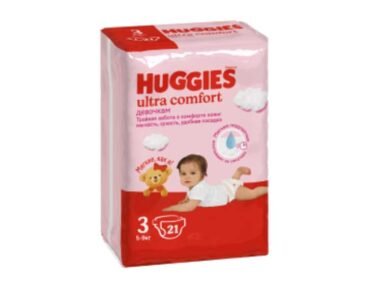A functioning water heater is essential for everyday comfort, from hot showers to efficient dishwashing and laundry. Over time, water heaters experience wear and tear, leading to decreased efficiency and potential breakdowns. While minor issues can sometimes be repaired, there are clear signs that indicate it may be time for a full replacement. Ignoring these warning signs can lead to higher energy bills, inconsistent water temperatures, and even damage to your home. We will explore key indicators that suggest you need a new water heater installation, helping you avoid sudden failures and ensuring your household has a reliable hot water supply. Click to Read More about our water heater installation company.
Inconsistent Water Temperature
One of the earliest signs that a water heater is reaching the end of its lifespan is fluctuating water temperature. If you notice that your water shifts from hot to lukewarm or even cold without warning, it could indicate internal problems. Mineral buildup within the tank can cause blockages, preventing the heating element from functioning correctly. Additionally, if the thermostat is failing or the heating element is deteriorating, the system will struggle to maintain a steady temperature. While adjusting the thermostat might offer a temporary fix, ongoing inconsistency strongly indicates that a new unit is necessary. A failing water heater may also struggle to meet household demand, particularly during peak usage. If family members frequently run out of hot water, even when usage patterns haven’t changed, this points to an aging unit that is no longer efficient. Installing a new water heater can restore consistent temperatures and improve overall performance.
Discolored or Rusty Water
Water discoloration is another significant indicator that your water heater may need replacing. If you notice brown, reddish, or murky water when using hot water taps, it is often a sign of rust forming inside the tank. Over time, corrosion can weaken the interior, allowing rust particles to enter the water supply. While sediment buildup can also cause discoloration, persistent rusty water, particularly from hot water taps, suggests the tank is deteriorating. Once rust forms inside the tank, it is only a matter of time before leaks develop.
Additionally, if the anode rod, designed to prevent rusting, has worn out, the tank will corrode more rapidly. Replacing the anode rod might briefly extend the unit’s life, but once rust becomes widespread, installing a new water heater is the most effective long-term solution. Ensuring clean, clear water is crucial for household safety, making it essential to address this issue promptly.
Unusual Noises from the Tank
Aging water heaters often produce strange noises, including popping, rumbling, or banging sounds. These noises typically occur due to sediment buildup at the bottom of the tank. As water is heated, minerals and debris settle, hardening over time and reducing the unit’s efficiency. The heating element must work harder to warm the water, leading to overheating and expansion of the sediment, which creates the noises. While flushing the tank can sometimes help, excessive sediment buildup often signals that the unit is nearing the end of its lifespan. Loud noises may also indicate failing internal components, such as a deteriorating heating element or pressure issues within the tank. If noises persist even after maintenance, replacing the unit is the most effective way to prevent further problems. A new water heater will operate more quietly and efficiently, improving performance and longevity.
Leaks and Moisture Around the Unit
Any visible leaks or excess moisture around the base of a water heater should never be ignored. Small leaks can quickly escalate into significant water damage, affecting flooring, walls, and nearby appliances. Cracks in the tank often cause leaks due to long-term wear, internal pressure issues, or corroded fittings. While some leaks can be repaired by replacing valves or tightening connections, a leaking tank cannot be fixed. As the metal expands and contracts with heating cycles, existing cracks worsen. If you consistently notice puddles or moisture around the unit, a replacement is necessary to avoid potential flooding and structural damage. A new installation will provide peace of mind, protecting your home from costly water damage while maintaining a reliable hot water supply.
Increasing Energy Bills
A sudden increase in energy bills without a change in water usage habits can indicate an inefficient water heater. As units age, they lose efficiency due to worn-out components, sediment buildup, and declining heating elements. When the system struggles to maintain the desired water temperature, it consumes more energy to compensate. Additionally, older models lack modern energy-saving features, further contributing to higher costs. If your utility bills have steadily risen, installing a new, energy-efficient unit may be more cost-effective than continuing to operate an inefficient system. Upgrading to a newer model can significantly reduce energy consumption while providing more consistent performance. Choosing an energy-efficient water heater also benefits the environment by reducing overall energy waste.
Recognizing the signs that you need a new water heater installation is essential to maintaining comfort, efficiency, and safety in your home. Fluctuating temperatures, rusty water, unusual noises, leaks, rising energy costs, frequent repairs, and poor water pressure indicate that your system may be nearing the end of its lifespan. While some issues can be temporarily addressed with maintenance, replacing an outdated or failing unit provides long-term reliability and improved performance. A new water heater ensures a consistent hot water supply and enhances energy efficiency, reducing overall costs. Paying attention to these warning signs and acting promptly can prevent unexpected breakdowns and avoid costly water damage. Upgrading to a modern, efficient unit is an investment in your home and daily convenience, ensuring a reliable hot water system for years.










